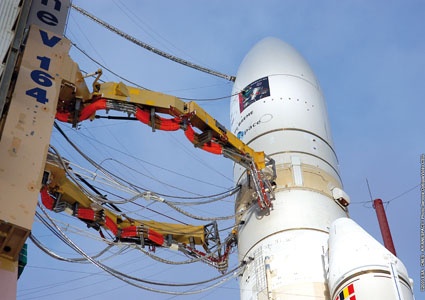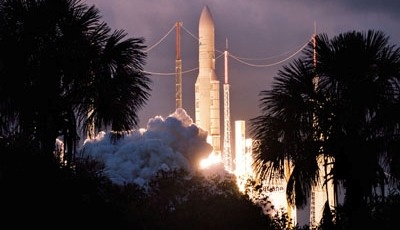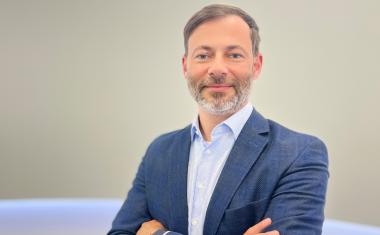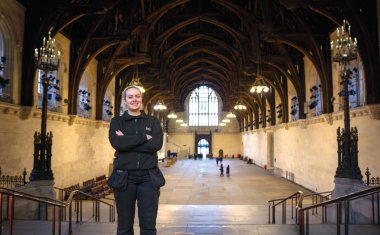Geutebruck Provides Security for European Space Center in French Guiana
The ‘Center Spatial Guyanais' (CSG) otherwise known as the Guiana Space Center near Kourou in French Guiana is the spaceport, which France shares with the European Space Agency (ES...


The ‘Center Spatial Guyanais' (CSG) otherwise known as the Guiana Space Center near Kourou in French Guiana is the spaceport, which France shares with the European Space Agency (ESA). Besides being the launch site for the Ariane rockets which are designed and built by partners in 12 European countries, Kourou also provides launch facilities for the ESA, the French space agency CNES, and as from 2011 Russian Soyuz rockets too.
Geutebruck France has been involved in providing a high security environment for the center since 2006 when a new multi-phase security design was drawn up and the initial contracts awarded. The first complete Geutebruck video security system was handed over in April 2009, with the second large four-year project completed in partnership with the Italian company Telematic Solutions (Milan) in December of the following year.
At the moment, Geutebruck have three other security projects in hand: the CSG harbor in Kourou; the new launch complex for the Russian Soyuz rockets; and the whole of the new Vega launch site. The Vega is a new smaller European rocket which is scheduled to make its debut in 2011. Once these projects have been completed almost all the spaceport will be protected with Geutebruck systems.
Extensive Grounds
The space center's extensive site covers 850 square kilometers. Besides its launch facilities there are various satellite and rocket assembly buildings and a plant for producing solid rocket propellant. Geographically speaking, the space center is situated in a very favorable location. On the one hand, being near the coast means that there is only a short journey for valuable payloads that arrive by ship, and on the other hand, that rockets are launched over water rather than over populated areas. Its position close to the equator ensures that rockets get maximum assistance from the earth's rotation and makes it simpler and less costly to manoeuvre satellites into geosynchronous orbit.
However, favorable though the location may be in some respects, its hot and sticky equatorial climate is a considerable challenge for electronic hardware. Environmental problems including mould, small animals, insects, high humidity, salt water and strong sunlight mean that preventative measures are required against corrosion, condensation, the gradual loosening of electrical connections, galvanic coupling and the risk of dirt causing bad contacts. Consequently Geutebruck has had to ensure that there cannot be any condensation inside its cabinets or devices, that there is no possible ingress for insects, that all moving parts are sealed off from the external climate and that PVC materials are selected for their resistance to moisture and mould.
Large Scale Everything
The space center uses Geutebruck video systems for typical security tasks - for example surveillance of the 35 kilometer-long perimeter fence - and also for monitoring processes and procedures. Currently the equipment in service includes around 40 19" racks, 80 Geviscope high end video system platforms, 42 Geviraid systems, 10 evaluation stations and 10 viewer stations combined with monitor walls, which are made to meet specific technical requirements. There are 670 cameras, 1200 Helios floodlights and a 140 Terabyte database.
The space center is a multinational, multicultural environment where staff from many different companies work together but which has to be organized with military precision. As the host agency, CNES is responsible for the design and quality assurance of the facilities. Both its project managers and the CSG end-users have expressed their satisfaction with Geutebruck's professional co-operation and with the performance of its video systems, and this sentiment is clearly reflected in Geutebruck's current order book.
most read

Airbus Defence and Space: Security as a strategic pillar of Europe's defense capability
Airbus Defence and Space protects sites, technologies and employees with modern security and cyber solutions - strengthening Europe's resilience in uncertain times


Safety and Security in an Emergency: How companies take responsibility with strategic personal protection and amok prevention
Personal protection & amok prevention: strategic concepts, training & responsibility for corporate safety and security

When the Internet stumbles: Why DNS is important
When DNS fails, the internet stumbles-AWS outage proves resilience and redundancy are vital for digital trust

Is Your Venue Ready for Martyn’s Law?
Martyn’s Law demands stronger security by 2027. Is your venue prepared to protect and respond?





